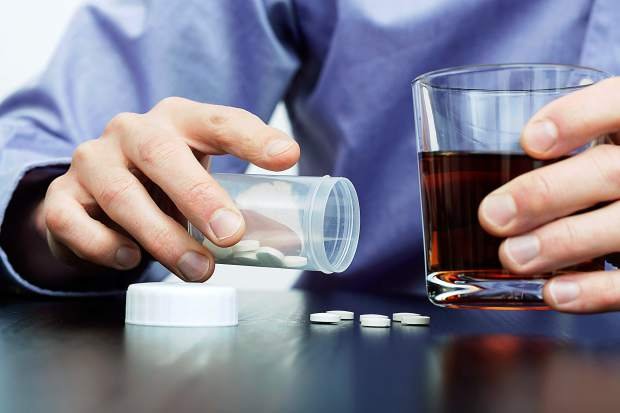The portrayal of LGBTQ individuals in popular culture often highlights their physical fitness, particularly focusing on gay men who are portrayed as striving to achieve the perfect physique through hours of intense workouts at the gym. However, this representation can be misleading, as it tends to overlook a significant issue within the LGBTQ community: substance abuse and addiction. For those in Arizona struggling with drug or alcohol addiction, seeking help from drug rehab centers in Arizona is a crucial step toward recovery.
Substance abuse and addiction affect people across all socio-economic classes, genders, and sexual orientations, but the LGBTQ community faces disproportionately high rates of these issues. Studies indicate that about 20 to 30 percent of the LGBTQ population deals with drug or alcohol abuse, compared to just nine percent in the heterosexual community.
Key Statistics on Substance Abuse in the LGBTQ Community
Breaking down these statistics further reveals startling disparities:
- Tobacco use is up to 200 percent higher among gay and transgender men than among their heterosexual and cisgender counterparts.
- Gay men are 12.2 times more likely to use amphetamines than heterosexual men.
- Heavy alcohol use affects approximately 25 percent of the LGBTQ population, compared to just 5 to 10 percent of heterosexual individuals.
- Gay men are 9.5 times more likely to use heroin and 12.2 times more likely to use amphetamines than straight men.
These alarming statistics indicate that the LGBTQ community faces unique challenges regarding substance abuse, often influenced by social stigma and isolation. While significant strides have been made in LGBTQ rights, discrimination persists, creating an environment where individuals may turn to drugs or alcohol as a coping mechanism.
Contributing Factors to Higher Substance Abuse Rates
There are several key factors that contribute to the elevated rates of drug abuse and addiction within the LGBTQ community:
Social Stigma and Isolation: LGBTQ individuals often face rejection or discrimination, leading to feelings of isolation and loneliness, which can increase the risk of substance abuse.
Legal Discrimination: In certain parts of the country, discrimination against LGBTQ individuals is still legal, affecting access to healthcare, employment, and housing, creating a toxic environment for personal well-being.
Hate Crimes and Violence: Rising rates of hate crimes and violence against the LGBTQ community, often tied to sexual orientation or gender identity, contribute to emotional distress and substance abuse.
Access to Care: Although progress has been made in some areas, healthcare access remains uneven, with some states lacking laws protecting LGBTQ individuals, making it harder to seek addiction treatment and support.
Addressing the Substance Abuse Crisis in the LGBTQ Community
To combat the higher rates of drug abuse and addiction in the LGBTQ community, a multi-faceted approach is required:
1. Access to Care and Support
- Ongoing cross-cultural training for medical professionals and addiction specialists can help ensure that the LGBTQ community receives appropriate and empathetic care.
- Expanding access to addiction treatment services that specifically address the needs of LGBTQ individuals is crucial for reducing substance abuse rates.
2. Legislative Action
To protect LGBTQ individuals from discrimination and improve access to care, several key legislative measures should be prioritized:
- Employment Non-Discrimination Act: Ensure that LGBTQ individuals are protected from employment discrimination nationwide.
- Housing Opportunities Made Equal Act: Enforce laws that protect LGBTQ individuals from housing discrimination.
- Respect for Marriage Act: Repeal outdated laws like the Defense of Marriage Act and recognize same-sex marriages federally.
- Health Equity and Accountability Act: Collect better data on sexual orientation and gender identity to address health disparities and improve care for the LGBTQ community.
3. Ending Harmful Practices
- Repealing discriminatory laws and banning conversion therapy is essential for protecting the emotional well-being of LGBTQ individuals.
- Efforts should also be made to ensure that violent crimes against LGBTQ individuals cannot use sexuality or gender expression as a defense.
Support for Drug Rehab Centers in Arizona
For LGBTQ individuals in Arizona dealing with substance abuse, there are resources available. Seeking help from drug rehab centers in Arizona that provide tailored treatment for the LGBTQ community can lead to long-term recovery and improved well-being. These centers often offer specialized programs and support systems that address the unique challenges faced by LGBTQ individuals struggling with addiction.
Conclusion: Breaking the Cycle of Substance Abuse in the LGBTQ Community
The LGBTQ community faces unique challenges when it comes to substance abuse, stemming from social stigma, discrimination, and isolation. However, with increased access to care, supportive policies, and targeted education, we can break the cycle of drug abuse and provide individuals with the tools and resources they need to heal. If you or someone you know is struggling with substance abuse in Arizona, don’t hesitate to seek help from a professional drug rehab center in Arizona for support and recovery.

